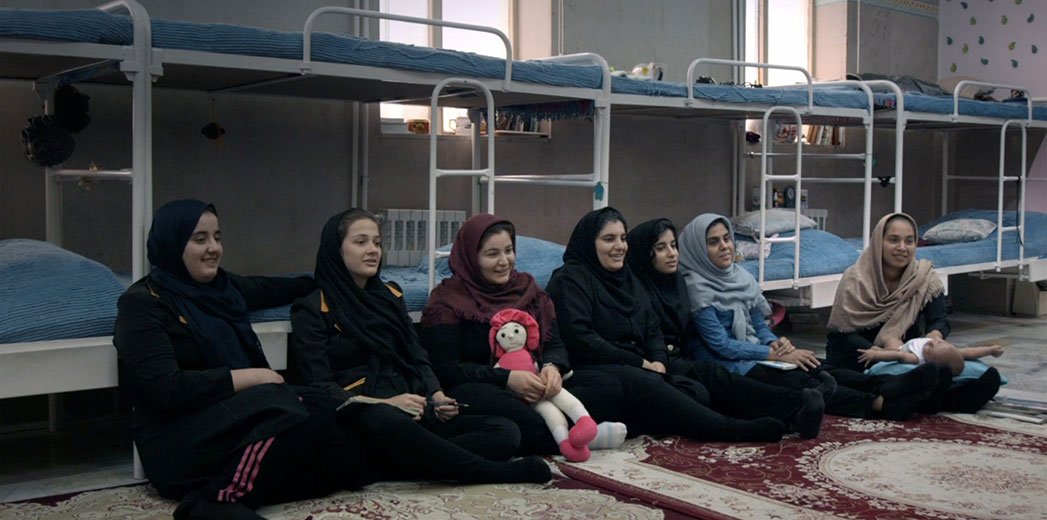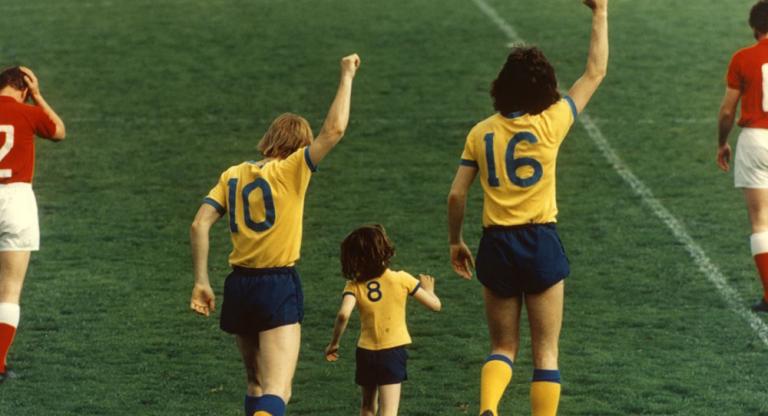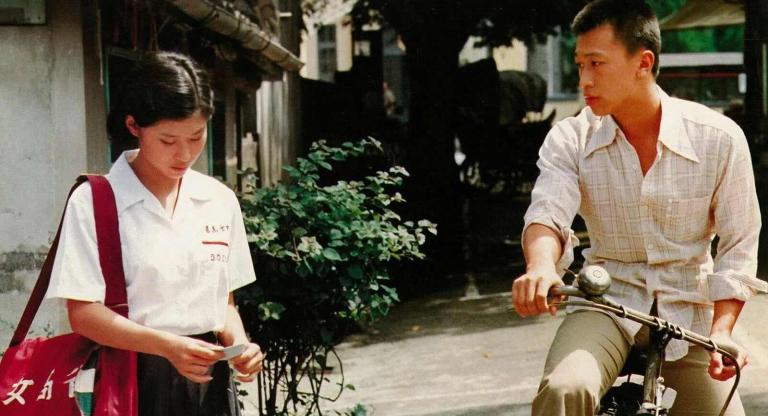From Aug. 5-30, Museum of the Moving Image will stream Bound Unbound: Four by Mehrdad Oskouei, showcasing the Iranain filmmaker’s tetralogy of documentaries about imprisoned youth.
It was only while shooting his second film, The Last Days of Winter (2011), at the “Center for Correction and Rehabilitation of Young Adults” that Oskouei even realized the compound had a female section, spotting two girls in shackles led away behind a high wall. His next film, Starless Dreams (2016), and his latest, Sunless Shadows (2019), focus on these hidden lives, offering not just a glimpse into a rarely seen world (Oskouei worked for years on gaining access), but rarest of all, absolutely no emotional distance between subject and camera.
Oskouei’s efforts to gain his subjects’ trust shows in his and his all-male crew’s near invisibility; though his presence is affectionately acknowledged with direct address, parodic imitation, and singing karaoke directly into the boom, the girls don’t alter their behavior in front of the lens.
Of the two films, Starless Dreams (2016) is more cloistered. There are glimpses of guards and the occasional handcuffed trip to court, but the film’s heart is the main room the girls sleep and live in. Viewers only familiar with the carceral intensity of United States juvenile centers might be shocked by both films’ architecture and daily routine, relatively unsupervised and communally operated. Iron bars are only visible filming the world outside, framed through the Center’s main gate. Within, the girls comfort and entertain each other. Silent tears are frequent, but so is laughter — despite the traumas that brought them here, they’re still girls, teasing each other and goofing around. There are effaced identities — 651 took her name from the amount of drugs she was caught carrying, another girl calls herself Nothing. Life outside doesn’t offer much for them, and phone calls connecting them to the world bring pain: a grandmother won’t visit, no family member will come bring clothes. They exist in a strange limbo, and isolation seems a kindness.
Sunless Shadows (2019) expands to include family, not as outside agents but as abettors. Many of the girls are confined for murder of fathers or husbands, aiding or aided by their sisters and mothers. Though Oskouei continues his probing direct inquiries, he also removes himself, allowing the girls to self-record. Their candid messages are heartrending. One tells the father she killed she still loves him, asking why he showed his kindness to her with beatings. The film ends with a direct address to a girl’s mother. We only hear her greeting but don’t need the rest of the message — the entire movie is testament to their relationship.
Oskouei presents his subjects not as victims, addicts, criminals, or children, but humans with complexities and depth. One of the girls, free two years now, returns to visit. She says she spent seven years, “the best” of her life, growing up here, and she refuses to bury her past. Oskouei’s films honor their subjects by telling their stories with the same respect.



